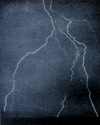
On 4 Aug 1863, Alexander George McAdie was born. As an American meteorologist, he is remembered for his exploration of high altitude air conditions, invention of frost-proofing devices for fruit growers, studies of atmospheric smoke pollution, and urging the adoption of the metric system in meteorology. He also investigated atmospheric electricity, auroral phenomena, lightning. Oh! — and was interested in seismology, too.
Yet, he still found time to write science articles for popular magazines. Several of the topics above are featured in his articles, which you can find on this index page. They include a memoir upon John Muir's death. An opening paragraph for each may whet your appetite, and you can follow each link to its complete article.
McAdie's name is probably unknown or only vaguely known to you. But as an example of a scientist beavering away in his field and communicating about it to the lay person, his writings are worth your attention.
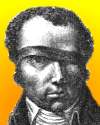
On 4 Aug 1755, an inventive manufacturer was born, who made his career out of manufacturing pencils. Such a simple object would scarcely seem worthy of a whole book about it, but astonishingly there is. And it’s by an engaging writer, too. Today's book pick is: , by . The author is an engineer who has written much on structural failures of bridges and buildings. Anything he writes is an easy and informative read. In this book, he turns his attention to a lowly, small object, and has produced yet another little gem to read. Petroski traces the origins of the pencil back to ancient Greece and Rome, writes factually and charmingly about its development over the centuries and around the world, and shows what the pencil can teach us about engineering and technology today. Your Webmaster has read it and enthusiastically recommends it.
It is available from Amazon, typically about (As of earlier time of writing - subject to change.)
 | Unless social sciences can be as creative as natural science, our new tools are not likely to be of much use to us. |
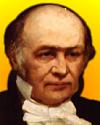 | i2 = j2 = k2 = ijk = - 1 [This representation was devised on 16th Oct 1843, and which he carved into a stone of Brougham Bridge, over the Royal Canal, Dublin. It has since worn away.] |
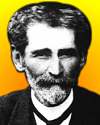 | I am not a lover of lawns; … the least interesting adjuncts of the country-house. … Rather would I see daisies in their thousands, ground ivy, hawkweed, and even the hated plantain with tall stems, and dandelions with splendid flowers and fairy down, than the too-well-tended lawn. |
| Before you look at today's web page, see if you can answer some of these questions about the events that happened on this day. Some of the names are very familiar. Others will likely stump you. Tickle your curiosity with these questions, then check your answers on today's web page. | |
| Births | |
 | Nicolas-Jacques Conté, born 4 Aug 1755, was a French mechanical genius who developed the method on which the manufacture of a very common household item is based, with which his name is still associated. Can you name this item? |
 | On 4 Aug 1863, Alexander McAdie was born, an American meteorologist who pioneered in the exploration of high altitude air conditions. What method did McAdie use to explore high altitudes? |
| Deaths | |
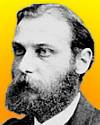 | Walther Flemming (1843-1905) was a German anatomist, a founder of the science of cytogenetics. He was the first to observe and describe systematically an important process that takes place during normal cell division (mitosis). What was it about mitosis that he was first to describe? |
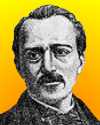 | Etienne Lenoir (1822-1900) was a Belgian inventor who devised the world's first commercially successful internal-combustion engine. He patented his first engine in 1860, and powered a road vehicle in 1863. What fuel did he use for his first engine? |
| Events | |
 | On 4 Aug of a certain year, the first potato-flake plant was established in the U.S. at Grand Fork, North Dakota. In what decade was this plant established? |
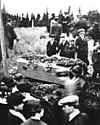 | On 4 Aug 1922, all 13 million telephones in the U.S. and Canada were dead for one minute. What happened to cause this event? |
Fast answers for the previous newsletter for August 3: flew in a Piper Cub airplane • Elisha Otis • phonograph with flat record disks • water-powered thread-spinning • the decade including the year 1921 • Los Angeles, California.
 If you enjoy this newsletter, the website, or wish to offer encouragement or ideas, please send feedback by using your mail reader Reply button.
If you enjoy this newsletter, the website, or wish to offer encouragement or ideas, please send feedback by using your mail reader Reply button. Your click on a Facebook, StumbleUpon, or other social button on the site webpages is also a welcome sign of appreciation. Thank you for using them.
© This newsletter is copyright 2020 by todayinsci.com. Please respect the Webmaster's wishes and do not put copies online of the Newsletter — or any Today in Science History webpage. (If you already have done so, please remove them. Thank you.) Offline use in education is encouraged such as a printout on a bulletin board, or projected for classroom viewing. Online, descriptive links to our pages are welcomed, as these will provide a reader with the most recent revisions, additions and/or corrections of a webpage. For any other copyright questions, please contact the Webmaster by using your mail reader Reply button.
--
If you do not want to receive any more newsletters, Unsubscribe
To update your preferences and to unsubscribe visit this link
Executive Real Estate Business Class
-
"It was like a man with wings. It wasn't like anything you'd see on TV or in a monster movie." ...
About the publisher
Search This Blog
Blog Archive
-
▼
2021
(585)
-
▼
August
(32)
- Newsletter for Tuesday 31 August.
- Newsletter for Monday 30 August.
- Newsletter for Sunday 29 August.
- Newsletter for Saturday 28 August.
- Newsletter for Friday 27 August.
- Newsletter for Thursday 26 August.
- Newsletter for Wednesday 25 August.
- Newsletter for Tuesday 24 August.
- Newsletter for Monday 23 August.
- All-New Tonight: 'The Machines That Built America'
- Newsletter for Sunday 22 August.
- Newsletter for Saturday 21 August.
- Newsletter for Friday 20 August.
- Newsletter for Thursday 19 August.
- Newsletter for Wednesday 18 August.
- Newsletter for Tuesday 17 August.
- Newsletter for Monday 16 August.
- Newsletter for Sunday 15 August.
- Newsletter for Saturday 14 August.
- Newsletter for Friday 13 August.
- Newsletter for Wednesday 11 August.
- Newsletter for Tuesday 10 August.
- Newsletter for Monday 9 August.
- All-New Tonight 9/8c: Telephone Wars
- Newsletter for Sunday 8 August.
- Newsletter for Saturday 7 August.
- Newsletter for Friday 6 August.
- Newsletter for Thursday 5 August.
- Newsletter for Wednesday 4 August.
- Newsletter for Tuesday 3 August.
- Newsletter for Monday 2 August.
- Newsletter for Sunday 1 August.
-
▼
August
(32)
-
Blogroll
-
About
HistoryFact










0 comments:
Post a Comment